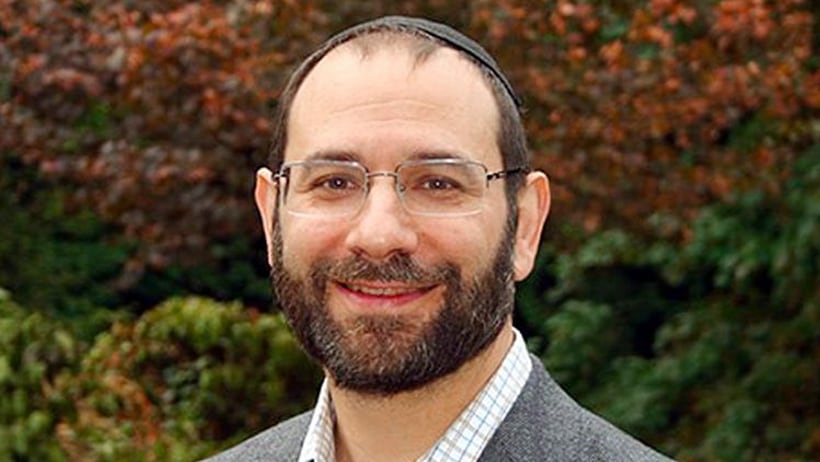Oasis Songs: Musings from Rav D
Friday, September 17, 2021 / 11 Tishrei 5782
Reading Time: 4 minutes
In between Rosh Hashanah and Yom Kippur, I found myself making four different dinners one evening. I wanted to make sure that there was something my father-in-law, my two boys, and I could all eat. (Laura was busy with clients and told us to eat on our own.) Sometimes it is possible to stumble upon one dish that satisfies all of us, but that is rare. My chef training allowed me to pull off this variety in relatively short order, but still…four different dinners?

That would never have happened in my parents’ home. You got what you got. Dad made breakfast, Mom made dinner. To facilitate this, the folks created “The List.” Every month, each child could put down three items that we didn’t have to eat. Otherwise, if it was part of the meal, we had to have a serving. This worked great for me and I developed an adventurous palate because of The List. My sister, though, chafed under the system.
These thoughts arose while reviewing the weekly Torah reading, Ha’azinu. This poem, the second to last parshah in the Torah, is focused on motivating others to do what we expect of them. Every teacher, coach, parent, doctor, romantic partner, or manager has asked similar questions. How can we best motivate people?
The challenge for us modern people is that Ha’azinu uses the ancient Jewish tool of guilt in order to get us back on the right path. Read with a comedian’s inflection, it is almost humorous. “God is perfect, but you? Oy, a dull and witless people.” I don’t expect that most people hear this section of the Torah as humor though. If we let the poetry wash over us, we understand that we are getting a severe “chewing out” by none less than God.
Of all the management tools out there, why does the Torah utilize this particular one? Particularly in our era, when we are aware of the role self-esteem has in a child’s capacity to grow, this approach seems, well, a bit harsh and unproductive. Framed slightly differently, we might also ask, “Will we get better results from people if we set standards for them, or if we build on their self-esteem and hope that we get the expected behavior by encouraging them?”
While we may not always live this way, most of us understand that either/or approaches have limited use. This shouldn’t be too surprising because people are complex. What is an incentive to one person can be a disincentive to another. Additionally, we enter every interaction with personal histories that predispose us to accept some forms of input and rebel against others. The fact is that guilt works on some people. It sufficiently wakes them up and gains their attention.
A deeper truth is that the Torah is a magnificent textbook on how to motivate and educate people. At times it sets clear expectations or rules, in the form of the mitzvot or commandments. Other times, it presents the same lesson in story form so that we can learn by seeing how actions and consequences play out in the life of one of our ancestors. There are moments when God is our superhero, such as when performing miracles in Egypt to set us free. This is meant to inspire some loyalty or gratitude from the Israelites. And there are times, such as in this week’s parshah, where guilt is the tool of choice. Yet even here, the guilt is framed relationally, not capriciously. We are reminded of all God has done for us. Although our poor behavior will be met with harsh treatment at the hands of our enemies, even then God commits to being there and picking us up afterwards.
Coming on the cusp between Yom Kippur and Sukkot, we are left to ponder which approaches motivate us to be our best selves. Some people appreciate the self-flagellation of Yom Kippur. They feel that this tough-love approach of confession, regret, and physical deprivation is cleansing. Others, particularly the Chasidic school, find Yom Kippur to be a day of tremendous joy. Regardless of that, our day of fasting and introspection is followed by Sukkot, which is understood to be the most joyous holiday of the year. Even the Jewish calendar asks us to focus in on what inspires us. May we have the wisdom to take advantage of these spiritual opportunities.
Warmly,
Rav D
Shabbat Table Talk
- Which approach to self-improvement do you prefer? Why?
- Can you recall moments in your life when an authority figure attempted to motivate you in a different manner than in the question above?
- When have you experienced the greatest growth in your life? What precipitated that growth, and can you identify the school of management that supported your growth?
- Having answered the above questions, has your spur to growth only occurred when it was presented in the preferred approach you outlined in response to the first question? If not, what still allowed you to make necessary changes?
If you’d like to continue this discussion, follow this link to CNS’s Facebook page to share your own perspectives on the topics raised in this week’s Oasis Songs. Comments will be moderated as necessary.



